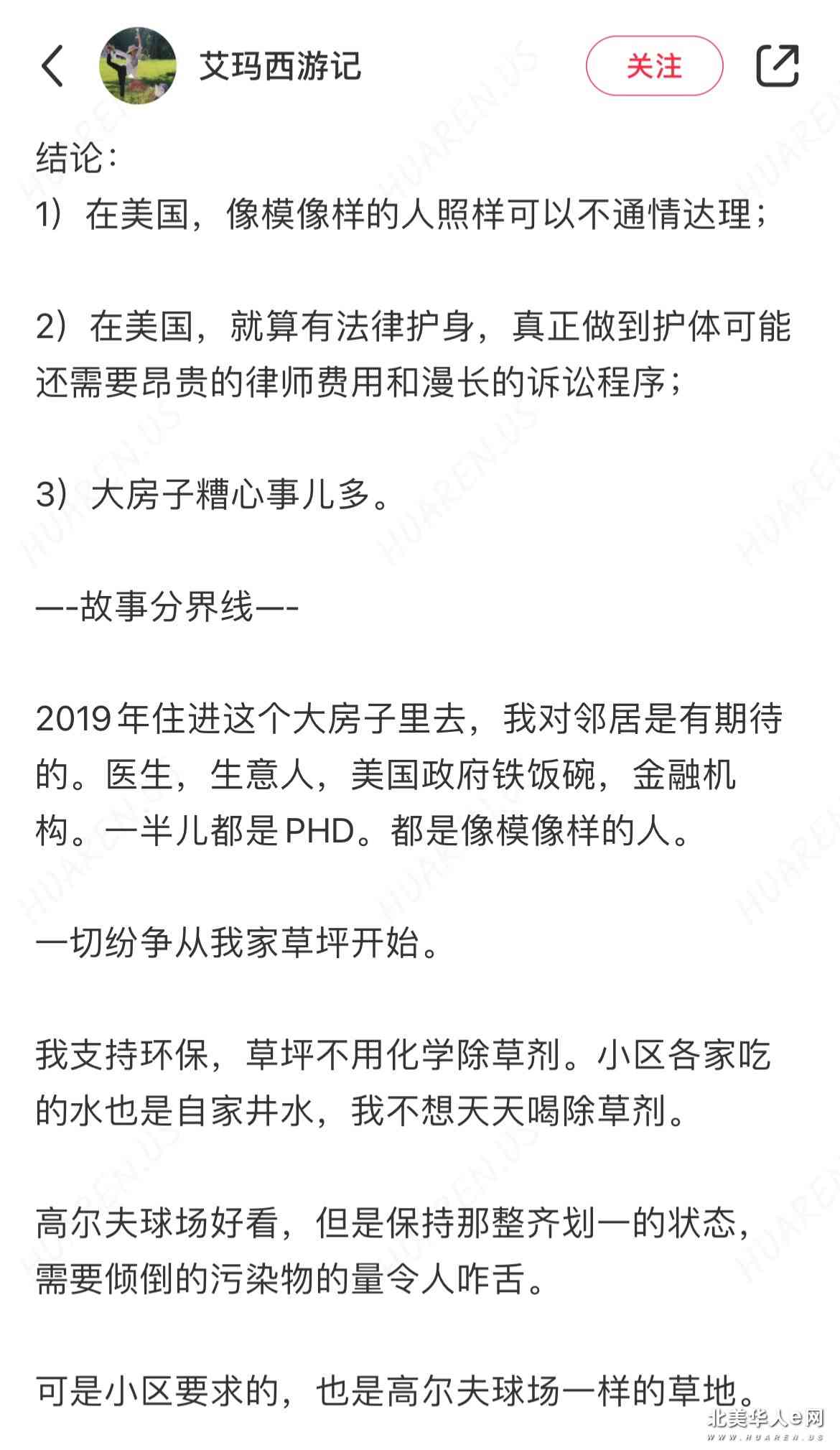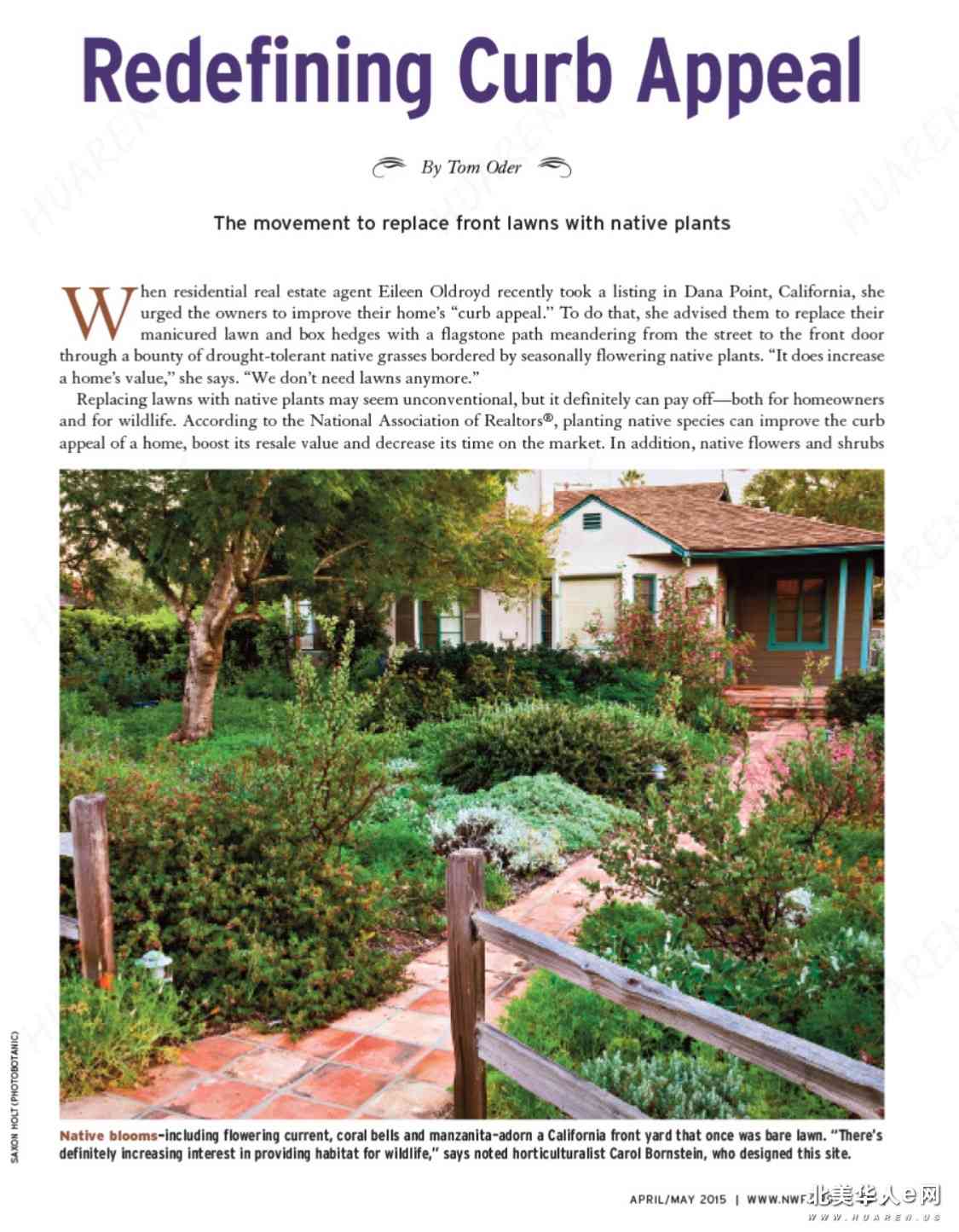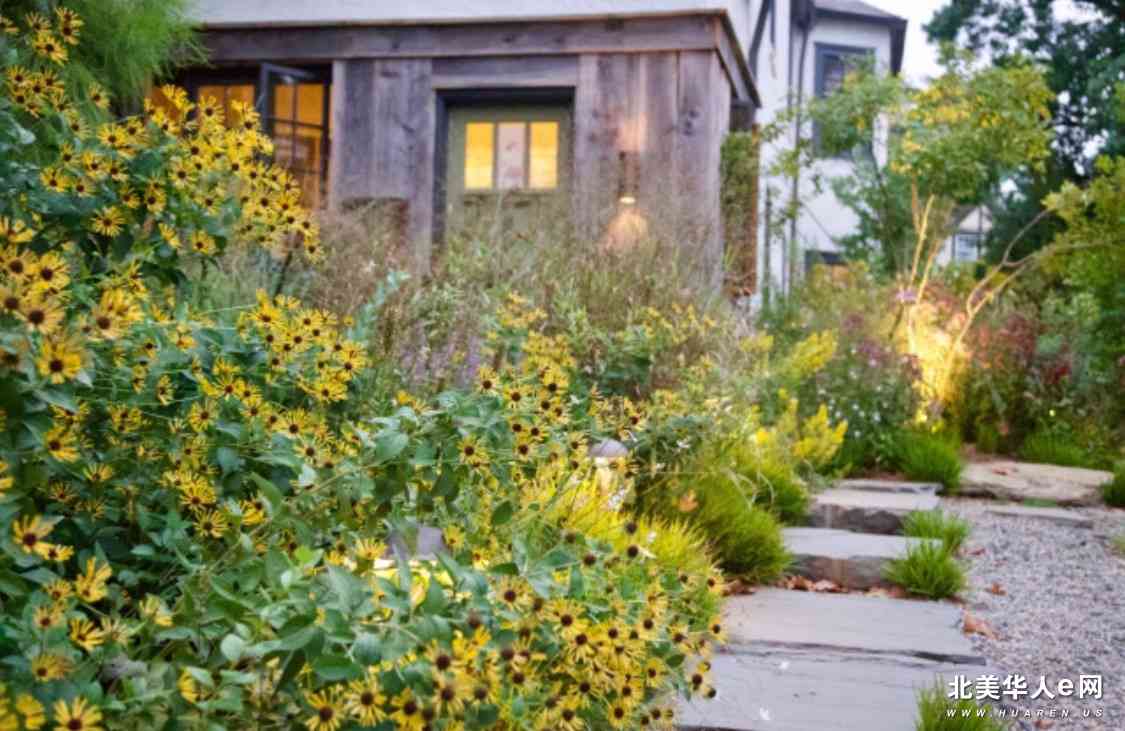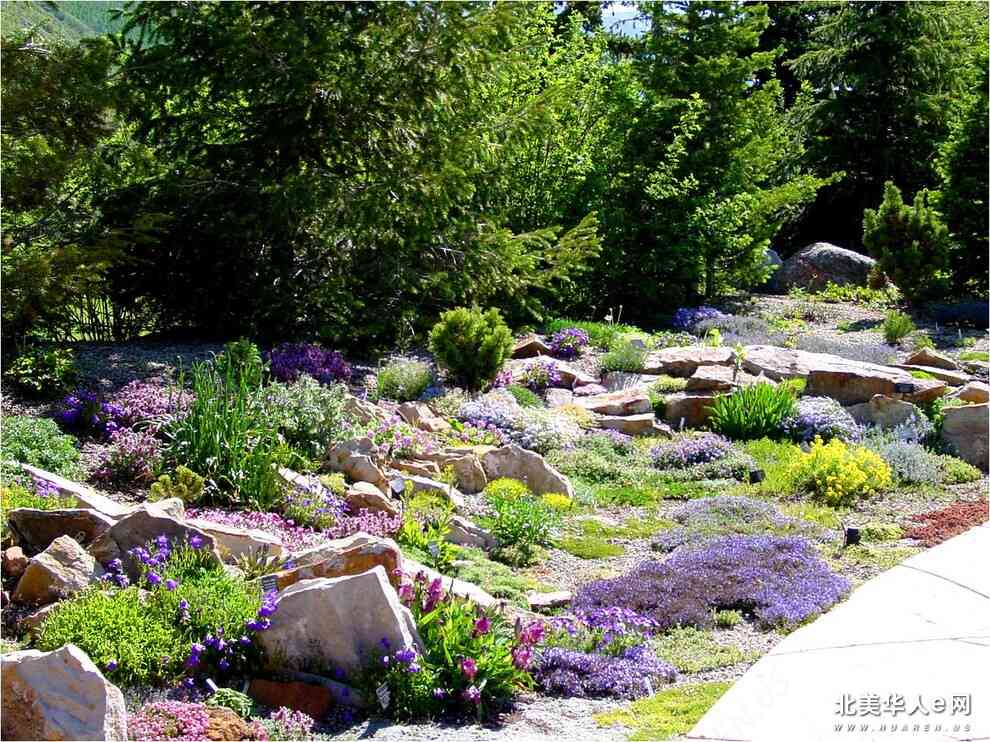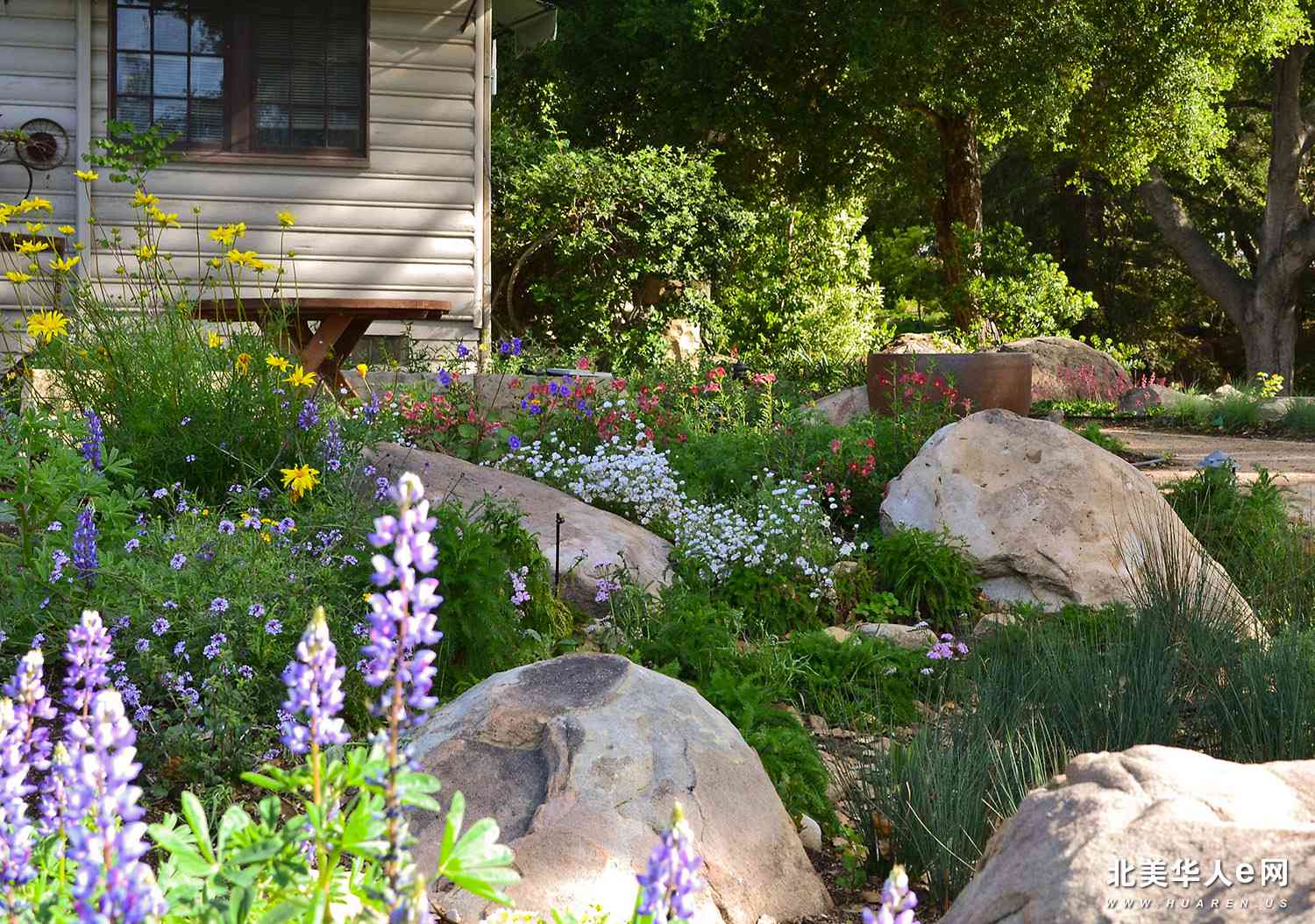这个不是华人。可是他做的是对的,我们的环境不需要草坪,需要原生植物帮助大自然的鸟类和昆虫。在长岛,很多人都会种本土的原生植物,而不只是草坪。
这里有一段我从纽约时报那片文章里抄出来的,让大家知道好的植物对环境有多么重要。 Perhaps it was the scarlet bee balm that drew hummingbirds in darting, whirring droves. Or the swamp milkweed that Monarch butterflies feasted upon before laying their eggs. Or maybe it was the native sunflowers that fed bumblebees and goldfinches.
全部文章:
New York Times article: "They Fought the Lawn. And the Lawn Lost." Dec. 14, 2022 COLUMBIA, Md. — Janet and Jeff Crouch do not know which flower or plant may have pushed their longtime next door neighbor over the edge, prompting him to pen complaint after complaint about the state of their yard. Perhaps it was the scarlet bee balm that drew hummingbirds in darting, whirring droves. Or the swamp milkweed that Monarch butterflies feasted upon before laying their eggs. Or maybe it was the native sunflowers that fed bumblebees and goldfinches. Whatever it was, their neighbor’s mounting resentment burst to the fore in the fall of 2017, in the form of a letter from a lawyer for their homeowner association that ordered the Crouches to rip out their native plant beds, and replace them with grass. The couple were stunned. They’d lived on their quiet cul-de-sac harmoniously with their neighbors for years, and chose native plants to help insects, birds and wildlife thrive. Now the association was telling them that their plantings not only violated the bylaws, but were eyesores that hurt property values. “Your yard is not the place for such a habitat,” the letter read. The Crouches were given 10 days to convert their front yard into a lawn that looked like everyone else’s. But instead of doing what they were told, the couple fought back, and ended up paving the way for a groundbreaking state law. Lawns continue to polarize Americans, with traditionalists prizing manicured emerald expanses and environmentalists seeing them as ecological deserts that suck up excessive amounts of water and pesticides. The locus of power in many of these disputes are community or homeowner associations, which, by one measure, govern some 74 million people nationwide. Generally these associations are tasked with making sure that yards are maintained, but there are mounting questions about what exactly that means. Insect, bird and wildlife populations are plummeting as a result of human activity, pollution and habitat destruction, prompting scientists to predict mounting mass extinctions in the coming years. As diplomats from nearly 200 nations meet in Montreal this week to try to hammer out an agreement to stop hundreds of species from disappearing, homeowners in the United States are increasingly planting native plants that provide sustenance to local and migratory butterflies, birds and bees. According to the National Wildlife Federation, in 2020 there was a 50 percent increase in people creating wildlife gardens certified by the organization. And a growing number of localities and states are enacting pollinator-friendly laws, and in 2020, Taylor Morrison, a major homebuilding company, partnered with the National Wildlife Federation in a plan to plant native species in its communities nationwide. The association told the Crouches that their plantings violated the bylaws and hurt property values. Still, native gardeners wanting to “naturescape” often face pushback from homeowner associations, whose primary interest is to protect home values by ensuring a consistent appearance across property lines. Associations can dictate everything from house paint colors to the location of driveway basketball hoops. But in Maryland, homeowner associations can no longer force residents to have lawns, thanks to the Crouches. The couple moved to Beech Creek, a clutch of homes bordering Columbia’s Cedar Lane Park, in 1999. Shortly afterward, they stopped using fertilizers and pesticides, a decision that they say deepened their connection with their modest plot of land, which backs onto some woods. “You’re thinking more about the soil, and its inhabitants, and how it fits together in the ecosystem,” said Mrs. Crouch, who works for the United States Department of Health and Human Services. At the urging of Mrs. Crouch’s sister, Nancy Lawson, a native plant proponent known as the Humane Gardener, the couple began adding indigenous and pollinator-friendly plants: coneflowers, cardinal flowers and phlox that drew little winged creatures. After work, Mr. Crouch, a clinical social worker, would wander the garden to see how the plants were doing, and offered flowers to kids who stopped to admire it. But as their garden grew, their next door neighbor, Daniel O’Rourke, was seething. Around 2012, Mr. O’Rourke began emailing the homeowner association, complaining that the Crouches’ yard was overgrown with weeds, figurines and barrels filled with rainwater, claims the couple would later contest. Mr. O’Rourke couldn’t enjoy his own property, he wrote, due to the “mess of a jungle” next door. Mr. O’Rourke, whose missives became public after the Crouches filed a lawsuit, did not respond to emails, calls or a note left at his home. A representative for the homeowner association declined to comment. At the time, the Crouches had no idea anything was amiss. They weren’t friends with Mr. O’Rourke, but they were cordial, waving from the driveway and on at least occasion, they said, lending him their ladder. Mr. O’Rourke continued to complain, saying that the Crouches’ yard was attracting rodents, deer, snakes and bats, and that they were planting shrubs and bushes in no particular order. In September 2017, the homeowner association sent the Crouches a letter saying their yard was in need of seasonal maintenance, which the Crouches said they heeded. Two months later, a cease and desist letter from the homeowner association’s lawyers arrived. If they didn’t change their yard back to a “neat, clean” lawn, the lawyer for the association wrote, the Crouches could face fines or worse. Lawns make up one-third of the country’s 135 million acres of residential landscaping, according to the ecologist Douglas W. Tallamy, who calls the velvety carpeting of bluegrass or ryegrass “ecological dead zones.” Dr. Tallamy, whose book, “Nature’s Best Hope,” urges homeowner to change their yards into conservation corridors, said that because so much property in the United States is privately owned — as much as 78 percent — owners had to be enlisted to grow native plants that support biodiversity. “This idea that humans and nature cannot coexist is destroying the entire planet, which in turn is destroying humans,” Dr. Tallamy said. “The only way forward is to coexist.” For the Crouches, giving in was not an option. They hired a lawyer and contacted every wildlife and environmental group they could think of, along with local legislators. After a year and a half, still at an impasse with the homeowner association and fearful that one day they’d come home to find their garden mowed down, they filed a complaint in Howard County Circuit Court. A chief claim was that in 2011 they’d been told there was no issue with their gardens, and also that before 2017, they’d received no violations for their yard despite regular inspections. “The overall principles are bigger than us,” Mrs. Crouch said. “We had an opportunity and even an obligation to see it through as best we could.” Two months after the Crouches filed their complaint, a Maryland state representative asked if they would allow their case to form the basis of a new environmental law. Maryland has contended with devastating floods — among them the 2018 submersion of Ellicott City — and mounting concerns about pesticide runoff to Chesapeake Bay. A bill was drafted that forbade homeowner associations from banning pollinator plants or rain gardens, or from requiring property owners to plant turf grass. Dozens of states have passed legislation to promote the health of pollinators, which include bees, wasps, bats and butterflies, while some have curbed the authority of homeowner association edicts during droughts. But the Maryland law was the first in the country to limit homeowner association control over eco-friendly yards, said Mary Catherine Cochran, former legislative director for Maryland State Delegate Terri L. Hill, a Democrat who co-sponsored the legislation. The measure gained bipartisan support, passed with near unanimity, and became law in October 2021. “It’s a really small effort in the face of the international work that needs to be done,” said Dr. Hill, a physician. “But it’s nice that individuals in the community are able to feel that they are empowered to make a difference.” In December 2020, the Crouches and their homeowner association, which had countersued, reached a settlement. The Crouches were able to keep virtually all of their garden intact, but agreed to remove plantings within three feet of their neighbor’s land and six feet of the sidewalk, and replace them with some sort of grass — they chose native Pennsylvania sedge. Their fight had a ripple effect. Their lawyer, Jeff Kahntroff, has since resolved not to use pesticides, and when part of a tree fell in his yard, he and his wife left it there for critters to use as habitat. Another Maryland couple, Jon Hussey and Emma Qin, were able to point to the law after their homeowner association objected to weeds in their lawn, which they kept mowed but pesticide free. “It’s crazy how ingrained turf grass has become,” Mr. Hussey said. “It doesn’t have to be that way.” In the end, the Crouches spent $60,000 on lawyers fees, but they say it was worth it. This fall, with the new law backing them up, the Crouches let their dead coneflowers, sunflowers and other perennials stand. Mr. Crouch awoke one frigid morning this November to find six birds on the stalks, feasting on the seeds. “Maryland was a big deal,” Dr. Tallamy, the ecologist, said. “Now people know if they fight back, they can win
